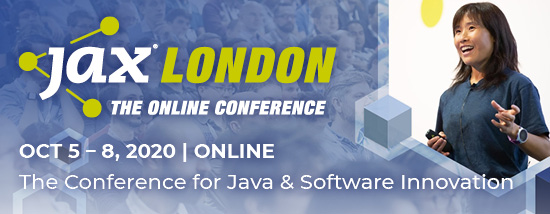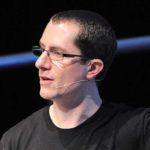A research study by The National Center for Women & Information Technology showed that “gender diversity has specific benefits in technology settings,” which could explain why tech companies have started to invest in initiatives that aim to boost the number of female applicants, recruit them in a more effective way, retain them for longer, and give them the opportunity to advance. But is it enough?
Four years ago, we launched a diversity series aimed at bringing the most inspirational and powerful women in the tech scene to your attention. Today, we’d like you to meet Greta Fest, Frontend Software Engineer, Experience Technology, Publicis Sapient.
Today’s Woman in Tech: Greta Fest, Frontend Software Engineer, Experience Technology, Publicis Sapient
 Greta originally studied art and design with a focus on “new media” at the University of Applied Sciences in Munich, where she earned her Master of Arts. During her studies and the accompanying creation of WordPress sites, Greta got a taste for front-end work. This passion was able to develop further in her first job as a junior creative developer. In the meantime, she has been working as a frontend developer at Publicis Sapient for 2 years now.
Greta originally studied art and design with a focus on “new media” at the University of Applied Sciences in Munich, where she earned her Master of Arts. During her studies and the accompanying creation of WordPress sites, Greta got a taste for front-end work. This passion was able to develop further in her first job as a junior creative developer. In the meantime, she has been working as a frontend developer at Publicis Sapient for 2 years now.
When did you become interested in technology?
I come from a very technology-savvy family. My father used to develop software himself and worked with the first generation of Macs. So we’ve always had a computer in the house. As a child, I was passionate about drawing and painting. So I started experimenting with different design programs on the computer at an early age. I think this approach and my mother’s enthusiasm for my rather dilettantish first attempts (some printouts still exist) meant that I never had any fear of contact with technology.
What did your career path look like?
I studied art and design with a focus on “new media”. As part of my bachelor’s degree, I took various programming courses, for example an introductory PHP course in which we created simple WordPress pages. You notice relatively quickly whether you enjoy these exercises. I liked the combination of analytical thinking and the immediate visual feedback. I then started developing websites for friends and acquaintances on the side. Back then, HTML/CSS and a bit of JavaScript got you very far. The ecosystem around front-end technologies was much more manageable a few years ago than it is today. I never thought that I would become a full-time programmer. It wasn’t a conscious decision originally either. The tasks in my first real job just evolved in that direction and I had so much fun with it that I stuck with it.
Do you have any role models?
I don’t have a real role model, but there have been a few mentors and supporters who have had a positive influence on my career development. I am very grateful for that.
Did you face any obstacles?
No, quite the opposite. Maybe I was just very lucky, but I always had very supportive superiors and colleagues.
A day in Greta’s life
I have been working as a front-end developer at Publicis Sapient, a digital business transformation consultancy, for two years. I usually work on one, maximum two different projects at the same time. The focus of my developer work is on websites and browser-based apps. My daily routine is varied and varies a lot, depending on the scope of the project and the client. Usually, there is a stand-up meeting once a day, where each team member gives an update on the work status and daily plans. Afterwards, I work alone or with other developers, have coordination meetings with designers and clients. My tasks are also very varied. For example, when I develop new features or integrate an API, I often have to read the documentation first (if available) and try out a lot. So it never gets boring.
Have you developed something yourself?
This summer, I participated in the Tech4Germany fellowship program, an initiative that brings people from the private sector together with ministries to implement digital projects. There I worked as part of a four-person team consisting of Product, Design and Development and the Federal Ministry of Justice and Consumer Protection on a new legal information portal for citizens. Using methods from design thinking, we developed a click dummy and an alpha version of the future portal as well as an associated data interface for German federal laws. A product that is intended to be accessible to all citizens in the future naturally has a different focus than a commercial product, which is what I am used to in my day-to-day work. Accordingly, the tech stack and approach is also different. The experience was really inspiring and I can only recommend everyone to get involved in such initiatives.
[…]I believe that many young women lack direct access to technology.
Why aren’t there more women in tech?
Apart from the gender stereotypes that children are exposed to at a very early age, I believe that many young women lack direct access to technology. If parents or other family members have no connection to information technology, this area is highly unlikely to play a major role in their own career planning. At school, IT lessons often have more of a media education focus. This does not make it at all clear what possible careers are available and what exciting prospects the industry offers. And to put it bluntly, the image of the “hacker” propagated by the media is rather off-putting for many women and not a particularly attractive way of life. To be honest, for a long time I couldn’t imagine making programming my profession either. In the end, however, it’s just a normal job for which women are just as suitable as men. I have regular working hours and don’t sit in front of the screen any longer than my colleagues in project management or design.
What stereotypes have you encountered regarding “women in tech”?
The impression that women are “by nature” less qualified or less suitable than men in this field is relatively persistent. This is probably only because there are currently so few women who prove the opposite. In companies where more women have technical jobs, this stereotype rarely plays a role. Fortunately, I myself never had the impression that I was considered less competent than my male colleagues. At least, I haven’t been made to feel that way. However, one’s own fear of conforming to this stereotype can also be insanely intimidating. This can lead to overcompensating by working a lot harder. Or the fear can be paralyzing because you don’t trust yourself enough.
Would our world be different if more women worked in STEM?
It is now generally recognized that homogeneous groups are less successful and that companies with diverse teams that reflect as many different perspectives as possible benefit financially and culturally. This is the only way to develop products and services that take into account the specific problems and needs of user groups that are not white and male. In recent years, for example, many great startups have developed in the health tech sector that focus on female health. In the digitalization of the public sector, it is also immensely important to encourage as many citizens as possible to actively participate in democracy and help shape political decision-making processes. There are currently many exciting projects and products in this area that benefit from female expertise. Since tech companies have enormous power in society today, a representation gap must be actively counteracted.
[…]You can learn everything through self-study and with sufficient effort and should not be intimidated by arrogance and clichés.
What does the future hold – will the diversity debate soon be history?
I hope so, but that will probably take a while. An important step would be to improve access by familiarizing children with new technologies at school and giving them the space to try things out. You have to give young people an insight into the industry at an early age and show them the varied career opportunities. There is indeed a very wide range of tech careers that can be creative and social, from technical project or product management to game design. There are also now many low-code platforms that allow you to prototype very quickly and easily.
What advice (and tips) would you give to women who want a tech career?
There are a lot of career changers in the tech industry. Most of my colleagues are self-taught or have studied something remotely related. The good thing is that you can find all the tools for web development online. There are numerous courses and tutorials to learn more. Many of them are offered for free. One’s own initiative is absolutely required. You can learn everything through self-study and with sufficient effort and should not be intimidated by arrogance and clichés. In any case, perseverance and self-confidence are required. It’s best to get regular feedback from colleagues before you fall prey to the widespread impostor syndrome. A positive work environment and superiors who support you and treat you with appreciation are extremely important. I am convinced that these people are even more important than the actual job, especially at the beginning of one’s career. It is also helpful for professional success to build up a good network and maintain these contacts.
More Women in Tech:
- Women in Tech: Viktoryia Verasava, TypeScript Developer at McMakler
- Women in Tech: Anke Sperger, internal sales representative at Axis Communications GmbH
- Women in Tech: Aviva Peisach, R&D manager of the Wix Identity company
- Women in Tech: Julie Shamji, Business Solutions Architect and consultant at Unisys
- Women in Tech: Emilie Gieler, Vice President of Platform & UX at Akeneo
For even more Women in Tech, click here
The post Women in Tech: “You have to give young people an early exposure to the industry.” appeared first on JAXenter.
Source : JAXenter
























